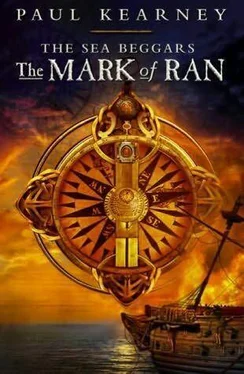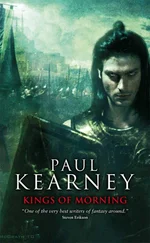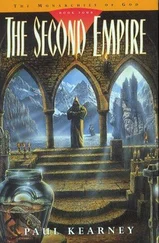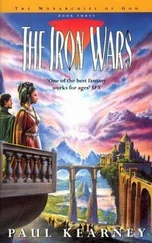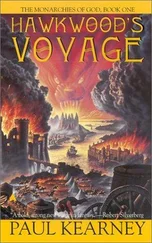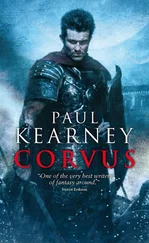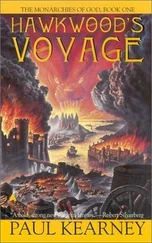Paul Kearney - The Mark of Ran
Здесь есть возможность читать онлайн «Paul Kearney - The Mark of Ran» весь текст электронной книги совершенно бесплатно (целиком полную версию без сокращений). В некоторых случаях можно слушать аудио, скачать через торрент в формате fb2 и присутствует краткое содержание. Жанр: Фэнтези, на английском языке. Описание произведения, (предисловие) а так же отзывы посетителей доступны на портале библиотеки ЛибКат.
- Название:The Mark of Ran
- Автор:
- Жанр:
- Год:неизвестен
- ISBN:нет данных
- Рейтинг книги:3 / 5. Голосов: 1
-
Избранное:Добавить в избранное
- Отзывы:
-
Ваша оценка:
- 60
- 1
- 2
- 3
- 4
- 5
The Mark of Ran: краткое содержание, описание и аннотация
Предлагаем к чтению аннотацию, описание, краткое содержание или предисловие (зависит от того, что написал сам автор книги «The Mark of Ran»). Если вы не нашли необходимую информацию о книге — напишите в комментариях, мы постараемся отыскать её.
The Mark of Ran — читать онлайн бесплатно полную книгу (весь текст) целиком
Ниже представлен текст книги, разбитый по страницам. Система сохранения места последней прочитанной страницы, позволяет с удобством читать онлайн бесплатно книгу «The Mark of Ran», без необходимости каждый раз заново искать на чём Вы остановились. Поставьте закладку, и сможете в любой момент перейти на страницу, на которой закончили чтение.
Интервал:
Закладка:
Rol’s family-for so he thought of them though Morin and Ayd were no kin to him-had lived on Dennifrey for many years. And yet still they were outsiders, and Grandfather could bring stillness to a packed tavern in Driol merely by peering across the threshold.
“We are the flotsam of an old hatred,” he had told Rol, “set adrift by the fear and ignorance of men.” He said many things of that sort, so many that even Rol now barely heard them. Grandfather had a rolling, lilted voice as deep as a barrel, musical as a lark, but he did so love to listen to it, and to make sonorous pronouncements about things Rol had no hope of ever understanding. So he and Morin would sit by the cottage wall mending the nets, nodding without knowing, for they loved the old man.
They lived separate and apart, the odd quartet, their cottage built by Morin out of wherzstone blocks, and set on a jutting promontory from which the shipping of the Twelve Seas could be seen in skeins of sails on the turquoise horizon. Eyrie, Grandfather had long before named their little dwelling, insisting that a house needed a name much as did a ship. And the house was good to them, as if appreciative of the thought. Roofed with turves and constructed as squarely as a redoubt, Eyrie shrugged off winter gales and crackling summer heat alike. It was the only home Rol had ever known, or would ever really know, a solid permanence at the center of his young life.
Below the cottage was a tiny crescent-shaped cove where they beached the wherry in winter, and behind it Ayd had crafted a rood of good soil with infinite labor and tons of seaweed, so they had fresh vegetables without haggling over them in town. Beyond it, in a small plashed wood, two pigs rooted in genial ignorance of their approaching fate, their black-striped offspring squealing for their teats.
On the very crumbling tip of the promontory loomed a hagrolith, cold even on the hottest Midsummer Day, and casting no shadow at sunset. The local folk refused to go near it, and yet Rol’s family had made their home within sight of its mossy flanks, and Rol thought of the stone as one might of a distant and seldom-seen relative, neither good nor ill, but part of the mental landscape. Grandfather often sat with his back to the stone, even in winter, and watched the endless progression of the sea-swells as they came traveling across the Wrywind.
The familiar landscape was circumscribed by the emptiness of the high moorland about the promontory. This was a wide waste of heather and scrub and bracken, soft going underfoot, and in wet seasons treacherous to those who did not know about the bogs and quagmires it spawned. No one lived there; it was left to the deer and the rabbits and the buzzards.
There were only intermittent contacts with the local people. Serioc the Headman of Driol would drop by once a year for the Tollcount, and though he would not enter the house, he would share a flagon of barley beer with Grandfather in something of an annual ritual, and would ask the same polite questions, then leave with the sweat cold upon his brow and the relief staring out of his eyes. But it would raise his standing in town for him to say he had dared to sup with the folk on the headland, and his re-election as Headman would be assured.
And Ayd would tramp the muddy miles into Driol once every few months to barter for those necessities that they could not make or grow or catch for themselves. Yarn for net-making, whitherb for Grandfather’s pipe, a new axe blade or kitchen knife to replace one worn to the quick, and always a great sack of yellow flour for their twice-weekly loaves. On her return the strap of her back-basket would leave a red bar across her forehead for days to mark the trip, and she would be slightly less cross-grained and irritable than usual, either because she liked going into town, or because she was glad to have it over with. After each trip she would always spend the following night out on the moors-to clear her head, she said-and would invariably return in the morning muddy and scratched, but with a brace of conies dangling from one fist, or more rarely a young deer, its neck broken and dangling.
One clear autumn afternoon Rol had fared farther afield than usual, blackberrying on the western slopes of the headland, when he had come across a knot of the local boys engaged in the same quest. He was large, and broad-shouldered for his age, but even he could do little when they pounced on him en masse and commenced pummeling his head into the springy short-grassed turf. His baffled astonishment gave way to fury, and he managed to plant his fist between the eyes of their sandy-haired ringleader. This merely fed their viciousness, however, and they were casting about for a suitable stone with which to crush his skull when out of nowhere Morin appeared. Rol lifted his bloodied head from the grass to see their faces go gray with terror, and abandoning their berry baskets, they fled, pelting back toward the town with a collective wail and nary a backward glance. But when Rol had looked at his rescuer, Morin was merely smiling his vacant-minded smile, like an amiable bear. Only for a second did he think he saw something else in the big man’s face, an emerald gleam in the eye, a strange blurred definition to his countenance. He put it down to the ringing in his head, and forgot it in the wealth of blackberry jam that ensued.
They avoided him after that, the village boys, and often as he tramped about the sere upland moors above the headland with his birding bow and game bag, he would see them at their play, and feel an odd pang as they took to their heels when they sighted him. He was not solitary by nature, and as he grew older he wearied of Ayd’s carping, Morin’s simpleminded placidity, his grandfather’s absurd tales and dark mutterings. It was a great joy to him when he was pronounced old enough to go out in the wherry with Morin, and take his chances with the whims of Ran and Ussa on the Wrywind.
The Gannet was a decked, shallow-draft inshore boat with a single mast that carried a loose-footed gaff mainsail. Broad-beamed as an old whore’s hips (so Grandfather said), she made a great deal of leeway, but made up for it with a ducklike stability. There was no style about her, but she had a fine, simple heart, and Grandfather repainted the sea-eyes on her bow every spring with great care, murmuring incomprehensibly as he did so. At the beginning, Rol could not raise her mainsail without Morin’s help, strain though he might at the halliards, but he had (so Morin said) a nose for the wind, and he was quick and deft with the tiller. In the autumn the southeasterlies came barreling up from Abor one after another, making the outward trip to the fishing grounds a swift pleasure, but beating back in their teeth was hard, intense work, and it called for fine judgment on the helm to keep the wind on the port bow.
The work on the boat, the hauling in of the nets, broadened the boy’s shoulders and toughened his muscles, so that within a year Rol was capable of handling Gannet alone, though this was not yet permitted. Most of their catch was ablaroni, the long, silver-flanked fish that was the staple of the Seven Isles. But they would also haul in squid, herrin, and Bank’s Monk, the fearsome-looking delicacy that in Bionar, Grandfather said, sold for its weight in silver minims.
Some fish they ate as part of their everyday diet. More went to feed the pigs, and a large proportion was dried or salted or smoked or pickled against the darkness of winter, when few fishermen would put out to chance Ran’s Rages. There was an earth cellar below the boards of the cottage, and by the solstice its shelves were a gleaming parade of jars and pots, and racks of ablaroni fillet salted to the consistency of wood. Soon the two pigs made their contribution, and there was blood pudding in the evenings after the slaughter-Grandfather’s favorite-as well as sausages and cured hams and jellied trotters and great sides of bacon smoked in the outhouse. There was dried seaweed to chew when the whitherb ran low, and wicker panniers of turnip and carrots and beet, harvested by the tireless Ayd before the first frosts cracked open the ground. There were pots of nuts, beaten off the limbs of the hazels in the pigs’ copse, and-a rare windfall-combs of honey raided by Morin from the trunk of a hollow oak farther down the headland, sealed with their own wax in an earthen pot and guarded by Ayd as though it were a worm’s hoard.
Читать дальшеИнтервал:
Закладка:
Похожие книги на «The Mark of Ran»
Представляем Вашему вниманию похожие книги на «The Mark of Ran» списком для выбора. Мы отобрали схожую по названию и смыслу литературу в надежде предоставить читателям больше вариантов отыскать новые, интересные, ещё непрочитанные произведения.
Обсуждение, отзывы о книге «The Mark of Ran» и просто собственные мнения читателей. Оставьте ваши комментарии, напишите, что Вы думаете о произведении, его смысле или главных героях. Укажите что конкретно понравилось, а что нет, и почему Вы так считаете.
